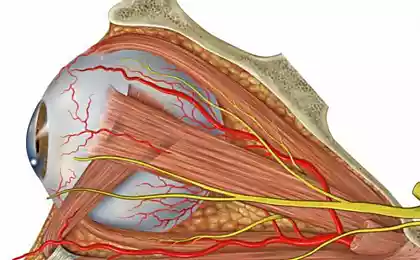342
Too active immunity corrupts the psyche

"Enhanced combat readiness" of the immune system is accompanied by an increased risk of mental disorders.
When we pick up an infectious disease, whether the flu or a gastrointestinal disorder, our immune system is working hard to get rid of it. Molecular and cellular characteristics of the immune response is very complex, and usually the whole set of processes run by infection, is defined as inflammation. In this case, the blood is ejected a huge number of signaling proteins by which the immune system organizes the work of the cells. One of the known protein interleukin-6 (IL-6), which stimulates immune response and may act as proinflammatory and anti-inflammatory signal.
But even if we are healthy, the body will still have some amount of inflammatory proteins, which may be higher or lower, depending on how the work of regulatory immune mechanisms. Researchers from Cambridge tried to assess whether inflammation affect mental health in the long term. That the immune status is closely associated with the state of the nervous system, says long. It is known, for example, that inflammation can impair memory and even cause Alzheimer's disease, and that antibiotics and anti-inflammatory drugs improve the condition of patients with schizophrenia.
In an article published by Peter Jones and his colleagues in the journal JAMA Psychiatry, these observations are confirmed by large-scale statistics, spanning nearly 10 years – the children regularly took blood tests, beginning with the time when the children were 9 to 18 years of age. In the blood, among other things, measured levels of inflammatory interleukin-6. The number of IL-6 the children were divided into three groups: those who were on average a little, not a lot. And now it turns out that those who have the level of interleukin-6 was consistently higher by the age of 18 are twice as likely to suffer from depression and psychosis than those who do level was low.
The increased readiness of the immune system to inflammation is, of course, not only affects the mental state. Doctors have repeatedly seen that on the background of chronic inflammation can develop cardiovascular disease and diabetes. The reason for the increased activity of the immune system may be rooted in early stages of development: stress, adverse conditions, migrated during fetal development or in childhood, overheat immunity, which, even in the absence of pathogens supports itself in smoldering ecologically activity level. Then it becomes clear why the diet and physical exercises that are designed to improve cardiovascular health, positively affects the mood: apparently, they operate on processes, from which depend the mental state and condition physiology.
However, what exactly is this process and what between them there is a causal relationship, scientists have yet to figure out. One of the mysteries here is connected with the blood-brain barrier (BBB), which protects the brain from the fact that floats in the blood, including immune cells and proteins (fight infections the brain has its own "Department" of the immune system, formed by glial cells). But depression and psychosis are rooted in the brain, and in this case inflammation in the body can cause psychological anomalies, if inflammatory signals do not pass through the BBB? However, hypotheses on this account, and on one of them it's not complete without the vagus nerve. It connects the brain with the throat, esophagus, lungs, heart, stomach and intestines. In the gut the vagus nerve can get inflammatory signal that transmits to the brain, causing Central nervous system changing the metabolism begins to actively disintegrate the neurotransmitter serotonin, necessary for positive emotions, and begin to accumulate toxic substances that provoke psychotic state.
Source: nkj.ru






















